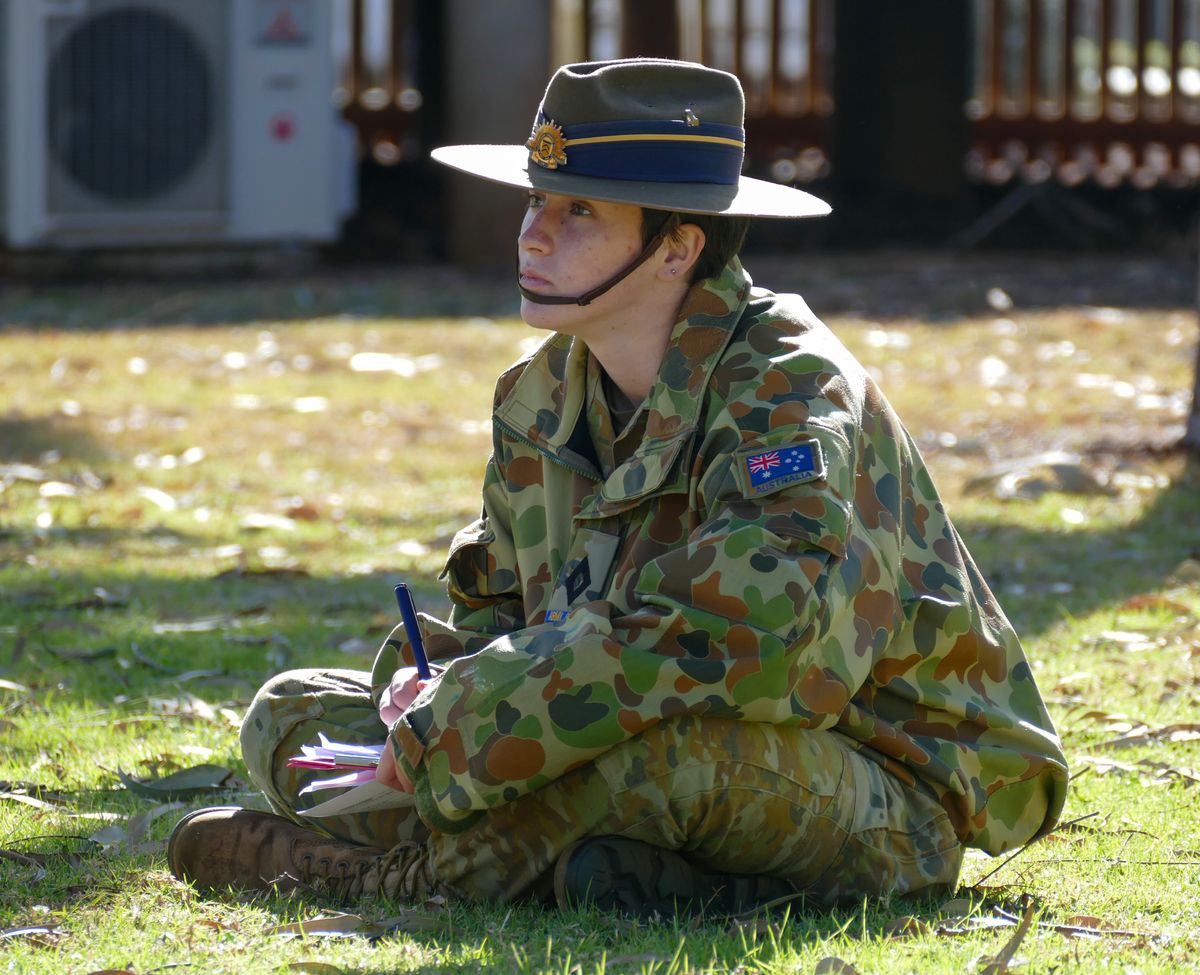Understanding how boys disclose their worries has become increasingly important, as they face unique challenges in sharing emotional concerns. At Toowoomba Grammar School, our annual student survey reveals that boys are most likely to confide in their Head of House and mentors. This highlights the need for targeted support structures and underscores the significance of trusted adults in our School community. This discussion explores recent research on boys' disclosure patterns, the roles of key figures in their lives and strategies to enhance support systems.
The Role of Parents in Boys' Disclosure
Parents play a crucial role in shaping boys' willingness to disclose their worries. Rote and Hodge (2022) emphasise that parental emotional support and involvement are key to fostering open communication. Younger boys often seek comfort and guidance from their mothers due to their nurturing roles (Buhrmester & Prager, 1995). As boys mature, fathers' roles become more significant. Parker and Asher (1993) found that fathers provide essential advice, especially regarding masculinity and practical concerns. This underscores the importance of balanced parental involvement.
Adolescents can sometimes engage in risky behaviours and might lie to avoid parental discovery or disciplinary actions. Unsupported adolescents may resort to deception to manage independence and evade scrutiny (Baudat et al., 2022). Frequent lying correlates with higher risk-taking, anxiety, and lower well-being (Elsharnouby & Dost-Gözkan, 2020). Therefore, creating a safe environment for boys to disclose concerns without fear of judgment is crucial for mitigating these adverse effects.
Paul Dillon (2017) highlights authoritative parenting—marked by warmth, responsiveness and clear communication—as essential for fostering an environment where adolescents feel safe to disclose risky behaviours. This parenting style balances high expectations with emotional support, encouraging open dialogue and clear boundaries. In contrast, authoritarian parenting, characterised by strict rules and minimal emotional support, can lead to concealment of behaviours. Ambivalent parenting, which is inconsistent and unpredictable in responsiveness and discipline, can also negatively impact adolescent disclosure and behaviour. Adolescents in ambivalent parenting environments may feel uncertain about their parents' reactions and may therefore withhold information about risky behaviours.
Moreover, Dillon’s insights align with research showing that authoritative parenting reduces adolescent substance use by fostering a supportive environment. Effective parental monitoring, clear rules, and appropriate consequences contribute to a protective environment that mitigates risky behaviours. By promoting a consistent and understanding approach, authoritative parenting encourages adolescents to engage in open dialogue and develop trust in their parental relationships. However, not all adolescents respond uniformly to authoritative parenting. Some may still engage in risky behaviours despite the presence of supportive environments and clear rules. Factors such as social media, peer influence, genetic predispositions and individual personality traits can significantly impact adolescent behaviour.
The Influence of Peer Relationships
Peer relationships are crucial in boys' disclosure patterns. Eastman and Beck (2023) highlight that boys often prefer to discuss worries indirectly through shared activities rather than direct conversation. This indirect communication allows boys to express concerns more comfortably. Friends play a vital role in providing emotional support, and boys often confide in peers with similar experiences, creating a sense of relatability. For example, our School promotes peer support through the "Little Mate, Big Mate" program, where Year 11 and 12 students mentor and support Years 7 and 8 students. They meet once a week during pastoral care groups, fostering sense of belonging, communication and building strong peer relationships through shared activities and mentorship.
Integrating Steer Tracking at Toowoomba Grammar School
Research by Simon Walker and Jo Walker (2024) in The Open Psychology Journal emphasises the Steer Tracking program's value in measuring social-emotional self-regulation in students aged 8-18. The program assesses four key tasks: Trust of Self, Trust of Others, Self-Disclosure and Seeking Change. It has proven effective in identifying students at risk for issues such as bullying, self-harm and coping difficulties. With rising mental health concerns exacerbated by the COVID-19 pandemic, Steer Tracking addresses the critical need for early identification and intervention.
For example, Steer Tracking can identify students who are vulnerable to a low sense of trust in others by evaluating their responses across key areas. At Toowoomba Grammar School, this program could help pinpoint students who exhibit signs of reluctance to engage with peers and educators, such as avoiding group activities or exhibiting defensive behaviour in interactions. By analysing these patterns, Steer Tracking provides actionable insights that allow teachers and counsellors to recognise when a student may be struggling with trust issues. This early identification enables tailored interventions, such as one-on-one support and gradually building trust through consistent, supportive interactions. Ultimately, Steer Tracking helps create a more responsive and supportive environment that addresses the specific emotional needs of students, fostering their development and well-being.
The Role of Teachers and School Counsellors
Teachers and school counsellors are pivotal in supporting boys' emotional needs. Zheng and Smith (2023) found that a supportive and approachable school environment encourages boys to share concerns with trusted adults. Our annual student survey at Toowoomba Grammar School indicates that boys are most likely to disclose their worries to their Head of House and mentors. This highlights the importance of having accessible and supportive figures within the school setting.
The Impact of Male and Female Teachers on Disclosure
Male teachers play a crucial role as role models in fostering an environment where boys feel comfortable disclosing their worries. By demonstrating positive expressions of masculinity and showing that various ways to be a man are valid, male teachers help reduce the stigma associated with emotional expression. Their openness in discussing emotions and seeking help sets a precedent for boys to follow, making it easier for them to share their concerns and seek support when needed.
On the other hand, female teachers contribute significantly by creating supportive and inclusive environments that encourage boys to open about their feelings. Their presence challenges traditional gender norms and provides diverse perspectives on emotional well-being. By fostering an atmosphere of understanding and empathy, female teachers help boys feel validated in their emotional experiences, promoting a culture where it is acceptable to disclose worries and seek help.
By integrating recent research insights into our practices and recognising the vital roles of both parents, male and female educators, we aim to enhance our support systems and promote the overall well-being of our students. If your child would like additional support, please contact Mr Lyle Gothmann or Dr Rina Scott Wilson for school counselling services.
Lyle Gothmann, School Counsellor Telephone:
(07) 4687 2627
Email: L.Gothmann@twgs.qld.edu.au
References
Buhrmester, D., & Prager, K. (1995). Patterns and functions of self-disclosure during childhood and adolescence. In K. J. Rotenberg (Ed.), Disclosure processes in children and adolescents (pp. 10-56). Cambridge University Press.
Dillon, P. (2017). Parenting style and its impact on alcohol and other drug use. [Fact sheet]. DARTA. https://darta.net.au/wp-content/uploads/2023/04/PARENTS-2017-PARENTING-STYLE.pdf
Parker, J. G., & Asher, S. R. (1993). Friendship and friendship quality in middle childhood: Links with peer group acceptance and feelings of loneliness and social dissatisfaction. Developmental Psychology, 29(4), 611-621. https://doi.org/10.1037/0012-1649.29.4.611
Rote, W. M., & Hodge, C. E. (2022). The role of parental involvement and emotional support in adolescents’ disclosure of personal issues. Journal of Adolescence, 92, 138-150.
Walker, S. P., & Walker, J. (2024). Constructing a novel instrument to measure social-emotional self-regulation in students aged 8-18. The Open Psychology Journal, 12, Article 17. https://doi.org/10.2174/0118743501284736240327051824
Zheng, X., & Smith, J. (2023). The role of male and female teachers in supporting boys’ emotional development. Teaching and Teacher Education, 45, 123-134.

























